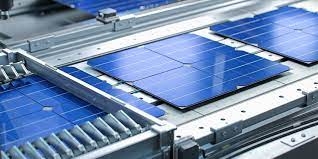XCV Panels, a term that may seem cryptic at first glance, refers to a type of advanced technology or system used in various applications, ranging from construction to electronics, and more. The acronym “XCV” could represent specific technical features or capabilities depending on the context in which it’s used, such as eXtended Control and Verification, Cross-Connect Verification, or any other industry-specific terminology. However, since “XCV Panel” does not correspond to a widely recognized standard term, this article will approach the concept hypothetically, exploring its potential applications, benefits, and features as if it were a novel technological solution designed for modern challenges.
The Different Types of XCV Panels
XCV Panels can be categorized based on their application, construction material, control mechanism, or the specific technology they employ. Here are hypothetical types of XCV Panels:
- Solar XCV Panels: Designed for energy generation, these panels could incorporate advanced photovoltaic technology with enhanced efficiency and durability.
- Smart XCV Panels: Used in building automation, these panels might feature integrated sensors and IoT connectivity for real-time monitoring and control.
- Security XCV Panels: Equipped with biometric scanners, cameras, and alarm systems for enhanced security measures.
How Does It Work?
The functionality of an XCV Panel can be imagined as depending on its type. For instance, a Solar XCV Panel would convert sunlight into electricity using a highly efficient photovoltaic process, while a Smart XCV Panel could automate various building functions like lighting, heating, and security based on sensor inputs and pre-defined algorithms.

What are the Benefits of XCV Panel?
The hypothetical benefits of XCV Panels could include:
- Energy Efficiency: Reduced power consumption thanks to intelligent management and advanced materials.
- Enhanced Security: Integrated security features for comprehensive safety solutions.
- Environmental Sustainability: Use of eco-friendly materials and technologies to minimize environmental impact.
- Cost Savings: Lower operational costs through automation and efficient energy use.
- Flexibility and Scalability: Easy integration with existing systems and scalability for future expansion.
What are the Applications of XCV Panel?
XCV Panels could find applications in a wide range of fields:
- Construction: In smart buildings and homes for controlling lighting, temperature, and security systems.
- Energy: In solar power plants for efficient energy generation and distribution.
- Manufacturing: For process control and automation in factories.
- Transportation: In the management of traffic systems and infrastructure monitoring.
Key Features of XCV Panel
The key features might include:
- High Efficiency: Superior performance in energy conversion or task execution.
- Durability: Robust construction suitable for various environments.
- Connectivity: IoT integration for remote monitoring and control.
- User-friendly Interface: Intuitive controls and interfaces for ease of use.
- Customization: Ability to be tailored to specific needs and applications.
Maintenance of XCV Panel
Maintenance practices could involve regular inspections, software updates, and the replacement of worn-out components. The modular design of XCV Panels could simplify these tasks, ensuring minimal downtime and extending the system’s lifespan.
Installation of XCV Panel Systems
The installation process would vary based on the panel type and application but generally involves site preparation, mounting the panels, connecting them to the existing infrastructure, and configuring the system. Qualified installation is preferred to make sure maximum performance and compliance with safety standards.
Conclusion
While “XCV Panel” as a term does not refer to a specific, existing technology, exploring its hypothetical applications and benefits highlights the potential of innovative solutions in addressing modern challenges. Such technologies, whether for energy generation, building management, or security, signify a step towards more efficient, secure, and sustainable systems.
FAQs
Q: Are XCV Panels available on the market? A: As “XCV Panel” is a hypothetical concept, there are no specific products available. However, similar technologies exist in various fields, including solar energy, smart home systems, and security.
Q: Can XCV Panels be used in residential properties? A: Yes, in this hypothetical scenario, XCV Panels could be tailored for both residential and commercial applications, enhancing energy efficiency, security, and convenience.
Q: What is the lifespan of an XCV Panel? A: The lifespan would depend on the type of panel, materials used, and maintenance practices, but advanced materials and design could ensure a long operational life.
Q: Are XCV Panels environmentally friendly? A: Yes, by incorporating sustainable materials and energy-efficient technologies, XCV Panels could be designed with environmental sustainability in mind.
Q: How do XCV Panels integrate with existing systems? A: Through standardized interfaces and protocols, making them compatible with a wide range of devices and systems for easy integration and scalability.


